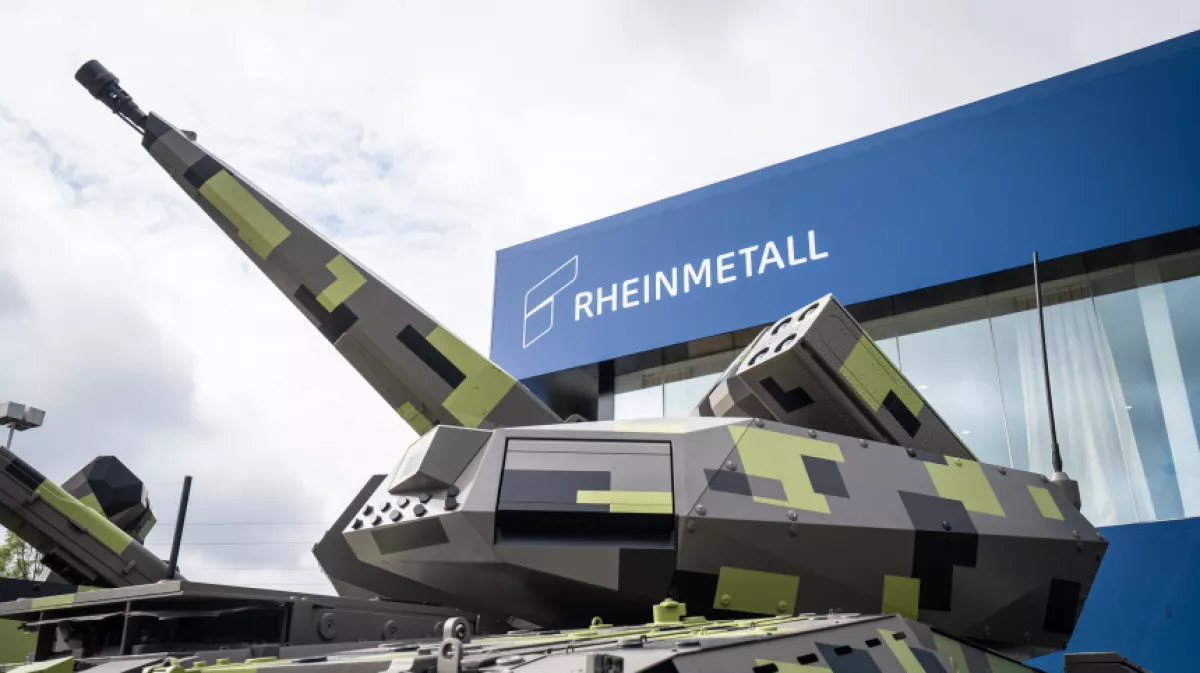Gunpowder production and the manufacturing of NATO-standard 155 mm artillery shells are set to begin in Bulgaria under two upcoming joint-venture agreements with German defense giant Rheinmetall. According to GERB leader Boyko Borissov, the agreements will be finalized within three weeks following his meeting in Düsseldorf with Rheinmetall CEO Armin Papperger.
Borissov announced that the gunpowder factory planned for Bulgaria will be “as big as two German factories,” making it the largest in Europe. He emphasized that gunpowder is among the most critical and scarce commodities at present and expressed gratitude to Papperger for choosing the grounds of the state-owned “Vazovski Mashinostroiteleni Zavodi (VMZ) – Sopot” as the location for the new facility. In addition, Borissov mentioned a second initiative, a drone design and manufacturing plant, either as a new factory or as part of an existing production branch. He credited Rheinmetall’s management for consistently sending teams to Bulgaria since March and acknowledged Papperger for recognizing the country’s industrial potential.
At the same time, Bulgaria’s plans unfold against the backdrop of a major parallel development in Romania. Just recently, Rheinmetall signed a €535 million contract with Romania to build what officials described as “the world’s most modern gunpowder plant.” The facility will be located in Brașov County and constructed jointly with the state-owned company Romarm. Scheduled to begin in 2026, the three-year project will create 700 jobs. Romania secured favorable terms in the negotiations, including veto rights on major decisions, mandatory participation of local suppliers, and defined licensing costs. Defense Minister Ionuț Moșteanu hailed the project as a “high-stakes investment” that would elevate Romania to the status of a “regional defense player.”
Meanwhile, Bulgarian officials continue discussions with Rheinmetall. President Rumen Radev attended the opening of the company’s new high-tech projectile plant in Unterlüß, Germany, where he met with Papperger. Radev underlined that the company’s plans in Bulgaria would extend beyond production to include long-term technological cooperation, job creation, and modernization of the Bulgarian armed forces. He stressed that the investment would anchor Bulgaria within the “European defense ecosystem.”
According to Papperger, the projectile factory planned for Bulgaria will produce between 100,000 and 150,000 shells annually – about half the output of the Unterlüß plant. The accompanying gunpowder facility, he added, would play a crucial role given Europe’s pressing shortages. Rheinmetall expects to complete project documentation within three to four weeks, after which the Bulgarian government must make a final decision.
Hristo Gadzhev, chairman of the parliamentary defense committee, also attended the Unterlüß inauguration. He stated that Bulgaria and Rheinmetall would split the investment costs for the two planned factories and that the government has already applied for EU funding under the SAFE security mechanism. According to him, this demonstrates that Bulgarian authorities have long been preparing for such projects.
Still, political competition in Sofia has overshadowed the developments. President Radev and Borissov have publicly clashed over who deserves credit for Rheinmetall’s decision to pursue investment in Bulgaria. Radev claimed that he personally convinced the German company at the start of the year to commit significant financial and technological resources to Bulgaria, describing the initiative as a “gift to the government.” He accused the ruling coalition of downplaying his role while simultaneously accusing him of obstruction.
Borissov, on the other hand, highlighted his own meeting with Papperger in Düsseldorf, where the Rheinmetall CEO credited his “good personal relations” with the GERB leader as the foundation of their partnership. Statements from both sides illustrate a widening political contest over who will be seen as the driving force behind Bulgaria’s prospective entry into Europe’s defense production chain.

